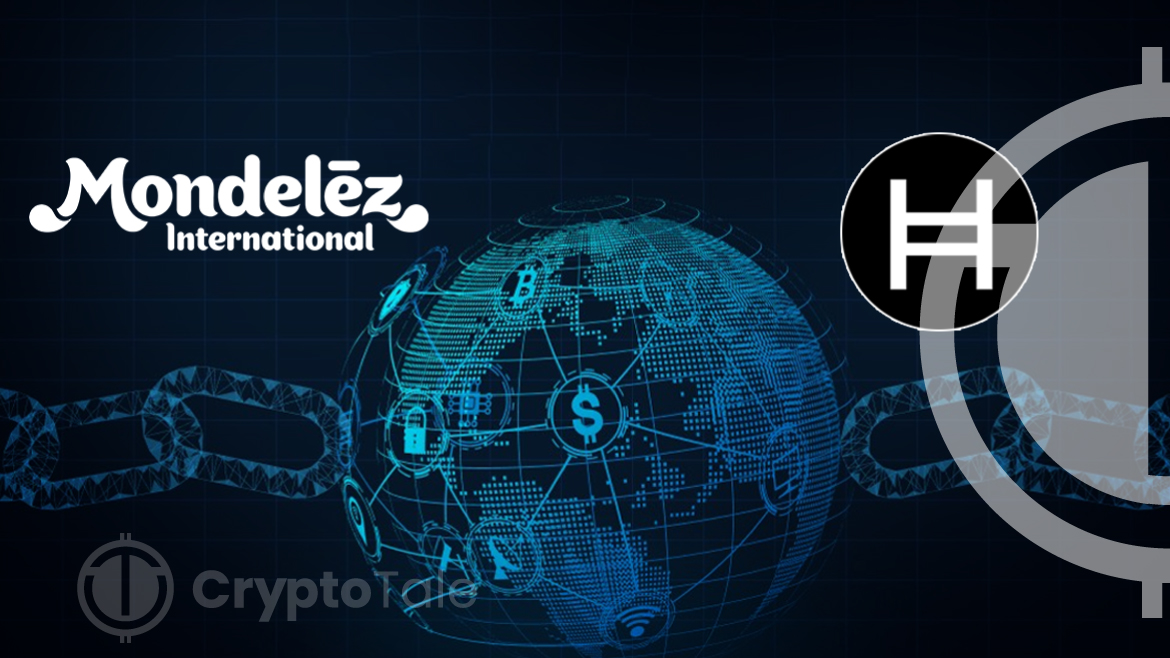- Mondelēz International’s partnership with Hedera aims to utilize distributed ledger technology (DLT) to enhance global supply chain transparency.
- The partnership aims to revolutionize supply chain management and introduce advanced digital payment offers, moving beyond conventional coupon systems.
- Challenges arise as Hedera faces investor scrutiny over the depreciating value of its native token, HBAR, highlighting the balance between innovation and market stability.
Mondelēz International, an American multinational renowned for iconic brands such as Oreo, Cadbury, Ritz, and Toblerone, has partnered with Hedera. Mondelez aims to work on distributed ledger technology (DLT), enhancing the global food and beverage industry’s approach to digital transformation. This strategic alliance aims to leverage DLT for improved supply chain tracking of consumer goods and the introduction of digital payment offers, advancing beyond traditional coupon systems to foster enhanced consumer engagement.
As the 31st member of the Hedera Council, Mondelēz aligns itself with technology and financial giants such as IBM, Google, and Boeing. This move is particularly noteworthy as it parallels the efforts of Avery Dennison, a council member whose Atma.io initiative significantly influences Hedera network’s activity, managing over 30 billion items and prominently featuring in the apparel industry.
The synergy between Avery Dennison’s consumer goods focus and Mondelēz’s vast product portfolio suggests a promising horizon for digital transformation. Should Mondelēz implement SKUx technology across its brands, the impact could mirror Avery’s, especially considering Cadbury’s annual sales figures that highlight the potential scale of this digital shift.
The inclusion of Mondelēz in the Hedera Council is not an isolated event; it follows the addition of Hitachi, underlining a growing trend towards DLT for innovation and operational improvement. Hedera Hashgraph distinguishes itself with its hashgraph consensus mechanism, promising high transaction speeds and quick finality, a significant departure from traditional blockchain frameworks.
Before its council membership, Mondelēz had already embarked on digital innovation through a collaboration with fintech payments platform SKUx, focusing on expanding customer engagement and digital payment avenues. Building upon this foundational relationship, Mondelēz is set to leverage its recent alliance with Hedera to enhance the tracking of supply chains for consumer-packaged goods and introduce digital payment-based offers, marking a significant advancement beyond traditional coupon systems to stimulate enriched consumer interactions.
However, the journey of technological adoption comes with its set of challenges. Hedera Hashgraph faces scrutiny from its investors, particularly regarding the depreciating value of its native token, HBAR. Led by investor Tatsuaki Okamoto, a petition highlights concerns over the token’s performance despite the network’s technological prowess and the backing of multinational corporations. The petition calls for action to stabilize HBAR’s value, reflecting the intricate balance between innovation, market expectations, and investor sentiment.






